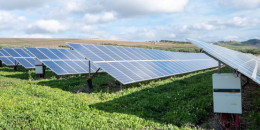The future of Southeast Asia's auto market: Electric cars dominate
Car sales in Southeast Asia have outstripped all other regions of the world. In 2017, total new car sales in Singapore, Indonesia, Malaysia, Thailand, Vietnam and the Philippines increased 5% to nearly 3.4 million units.
To date, ASEAN has an exceptionally high rate of car ownership compared to other regions of the world. The percentage of households owning more than one car in countries like Thailand, Malaysia and Indonesia is growing rapidly. Without major changes, vehicle ownership is estimated across the region to increase by more than 40% by 2040…

The sharp increase in automobile consumption is placing great pressure on the environment. Most vehicles in the region run on gasoline or diesel, making air pollution worse in Southeast Asian cities… A study by the Faculty of Public Health Indonesia found that 58% The number of diseases of people living in the city is related to air pollution.
In that context, electric vehicles (EVs) seem to be a better choice to balance comfort and environmental protection. EVs, including hybrid electric vehicles, can significantly reduce their carbon footprint, compared to conventional cars that emit carbon dioxide, carbon monoxide and nitrogen oxides that are not good for the environment.
According to a study led by Nissan and conducted by research firm Frost & Sullivan, one-third of Southeast Asian consumers are willing to buy an electric vehicle. Research shows that consumers in the Philippines, Thailand and Indonesia are the most enthusiastic about the future of EVs.

Greater environmental awareness and the growing middle class in the region have boosted EV sales in some countries. In Malaysia, growth in energy-efficient vehicles (EEVs) - including EVs - has surpassed the 2018 target. In 2019, the Malaysian Institute of Automotive, Robotics and IoT (MARii) set ambitious targets. The hope is that the 3rd made in Malaysia car will be an electric car.
In Vietnam, VinFast has been developing electric scooters since 2018. The company is also expected to produce electric cars.
The Electric Vehicle Association of the Philippines (EVAP) aims to have one million electric vehicles on the streets of the Philippines by 2020. The association is also working with the government to develop a National Electric Vehicle Roadmap. The Philippine Department of Energy (DOE) has also partnered with the Asian Development Bank (ADB) to introduce an electric tricycle (e-vehicle) powered by lithium-ion battery technology. The initiative aims to reduce the transportation industry's annual gasoline consumption by 2.8% and cut carbon dioxide emissions by an estimated 259,008 tons annually by switching to 100,000 electric vehicles.
Singapore has long had the idea of large-scale operation of electric buses. In October 2018, the island nation's Land Transport Authority (LTA) approved bids for three companies for 60 electric buses, contributing to making public transport more environmentally friendly.
As such, electric vehicles can completely be the future of transportation in the region, especially as investment activities and demand in this sector increase, reinforced and encouraged by the stimulus policy. and government production support. A prime example can be seen in the Thai auto industry. In 2019, Thailand's domestic auto market is expected to grow only between 2% and 5% while EV sales growth is projected to remain impressive between 76-83%.
In 2019, the Thai government will also try to encourage eco-car manufacturers to launch more eco-EVs, especially hybrid ones. These eco EVs will also receive the same excise tax reduction as other EV models, making the retail price more affordable. Another impetus for EV production is attributed to the transfer of more advanced technologies to domestic manufacturers from establishing joint ventures with overseas manufacturers.
Thai auto exports have outstripped domestic sales, accounting for about 60% of the country's auto sales in 2018. Thailand's auto exports are forecast to grow 1-4 in 2019. % due to weak demand and the tendency to move production facilities to countries in Europe. However, the volume of automobile exports to Vietnam is expected to increase significantly by about 14-22% in 2019 for a reason: Relocating passenger car production facilities to Thailand for automotive products be re-exported back to Vietnam; Higher average income of Vietnamese households; More consumer interest in more affordable small-engine eco-cars, especially in the context of rising gasoline prices...
In contrast, Thai auto exports to Europe will be pressured by the relocation of production facilities to countries in this region such as Hungary, the Netherlands, France and Finland, to be closer to end consumers. in an effort to reduce transportation and logistics costs. Emissions control in Europe will also reduce Thai car exports to the EU. Finally, the United States-Mexico-Canada Agreement (USMCA) will go into effect in 2020, tightening controls over where vehicles are originally manufactured. This is likely to slow down Thai auto exports to these countries. Thailand can limit the negative effects by ramping up EV production and exports to European member states and the USMA, which are strongly promoting EV adoption.
It can be seen that, while Thailand's overall auto sales outlook is less positive in 2019 due to weak demand in the domestic market and in traditional export markets, the growth is high in the segment. EVs will continue to be the main driving force for the industry. Therefore, the Thai government is trying to encourage the production of EVs and high-tech auto parts through the promotion of BOI incentive packages. In 2018, the country's government approved Nissan Motor Co and Honda Motor Co's HEV and battery production projects worth up to $888 million (28 billion baht). Meanwhile, Mazda Motor Co has been granted the investment privilege to produce HEVs and has decided to register full EVs production in Thailand. Many other manufacturers also have investment plans and are studying opportunities in the application process for the BOI package.
Hong Quyen (source: according to Bao Khanh, https://congthuong.vn)
Senectus et netus et malesuada. Nunc pulvinar sapien et ligula ullamcorper malesuada proin. Neque convallis a cras semper auctor. Libero id faucibus nisl tincidunt eget. Leo a diam sollicitudin tempor id. A lacus vestibulum sed arcu non odio euismod lacinia. In tellus integer feugiat scelerisque.
Feugiat in fermentum posuere urna nec tincidunt praesent. Porttitor rhoncus dolor purus non enim praesent elementum facilisis. Nisi scelerisque eu ultrices vitae auctor eu augue ut lectus. Ipsum faucibus vitae aliquet nec ullamcorper sit amet risus. Et malesuada fames ac turpis egestas sed. Sit amet nisl suscipit adipiscing bibendum est ultricies. Arcu ac tortor dignissim convallis aenean et tortor at. Pretium viverra suspendisse potenti nullam ac tortor vitae purus.
Eros donec ac odio tempor orci dapibus ultrices. Elementum nibh tellus molestie nunc. Et magnis dis parturient montes nascetur. Est placerat in egestas erat imperdiet. Consequat interdum varius sit amet mattis vulputate enim.




.jpg)





